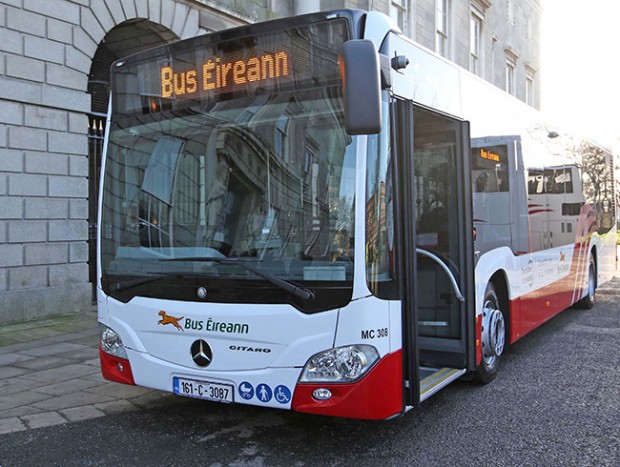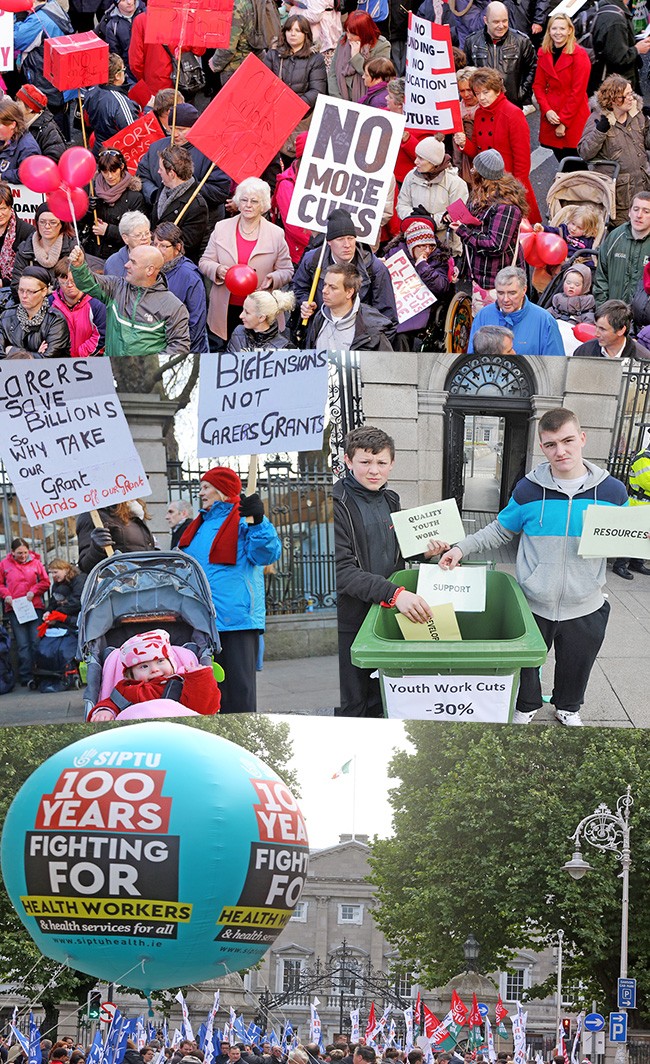13 February 2017 Edition
Society or the market – that’s the choice

• Public transport is a social service, without which rural Ireland cannot function
To tackle the problems we face, we need the subordination of the nation’s wealth to the common good
AS WE REEL from one apparently insoluble crisis to another, it is clear that our society and its political system are completely dysfunctional and unable to meet the needs of the Irish people.
The health crisis gets worse and worse, public transport faces collapse, there is no end to the housing crises, wages remain below pre-crisis levels, and the shadow of austerity still blights us all as we continue to pay millions to the EU to pay for promissory notes which guaranteed German banks that they wouldn’t go to the wall for their reckless lending.
But this is not a matter of incompetence (though incompetence does abound at the highest levels). It is a matter of class interest.
To tackle the problems we face, we need the subordination of the nation’s wealth to the common good – an old republican principle. Instead, Fine Gael and Fianna Fáil (acting together to form government policy even though they try to deny it) see their role as nothing more than at best creating the conditions in which ‘the market’ can provide the answers.
That means, of course, that profit-makers can make even more profits out of people’s needs and that the wealthy (who are the primary backers of both Fine Gael and Fianna Fáil) can get even wealthier.
In health, for example, under-investment remains central even as the Government backs down on its plans to break consultants’ contracts re pay. We still have fewer beds today than we did in 2009, even though our population has increased and has on average gone up in age.
Having refused to provide jobs for trainee nurses as they qualified in the years 2009 to 2014, we are now desperately trying to entice them back – in competition with higher wages and better conditions abroad, and with immovable obstacles in housing.

• Public service cuts are driven by rules of 'the market', not needs of the people
Housing is the most obvious crisis as the Government resolutely refuses to provide the funds for the state and local authorities to build the houses we need– as was done in the 1940s, 1970s and 1980s.
Of course, providing such finance would run contrary to the Fiscal Compact rules of the European Union, and we can’t upset them, can we?
Even worse, while forcing people into the private profit-making rental sector, the Government still refuses to provide legal guarantees of secure tenure and fair rents. The pathetic nods in the direction of rent controls only play at the edge of the crisis while tenants remain at the mercy of a professional landlord class that has never shown anyone mercy.
The accidental landlord, the person who bought a house but can no longer meet the repayments and is saddled with negative equity, is crushed by a taxation system that ignores the debt reality of individuals as the vulture funds enjoy tax-free killings.
Transport is another example, with the Government insisting that Bus Éireann, Bus Átha Cliath and Iarnród Éireann are commercial enterprises which should be left to their own devices.
They are not.
Public transport is a social and economic service, without which rural Ireland cannot function. The costs must be met by the state in any rational, civilised country.
And those who work in public transport are as entitled to a proper wage and working conditions as anyone else, as entitled indeed as the ubiquitous Transport Minister Shane Ross.
The point is that in order to safeguard the profits of the rich, and to give them more and more opportunities for profit-making at the public’s expense, it is ‘the market’ that rules, not the needs of society.
As we look back at the boom and subsequent crisis we can see how this operated. Remember the infamous ‘Bord Snip’ and ‘Bord Snip Nua’?
Economist Colm McCarthy was charged with cutting public expenditure at any cost. And the cost was huge. Why? Because instead of starting from the basis of what services (in public administration, health, education transport and employment creation) we needed and then finding the money from the rich to pay for these services, the focus was to cut services and wages so that the rich would escape the burden of sharing their wealth with the rest of us.
Within this mindset there is no solution to any of the problems we confront; and within this mindset there is no alternative either.
What is needed is to reject the rule of ‘the market’, to reject the subordination of public policy to the enrichment of the greedy, and to bring society’s needs for an interventionist, job-creating state to the forefront – even if that brings us into direct conflict with the rules of the European Union.




